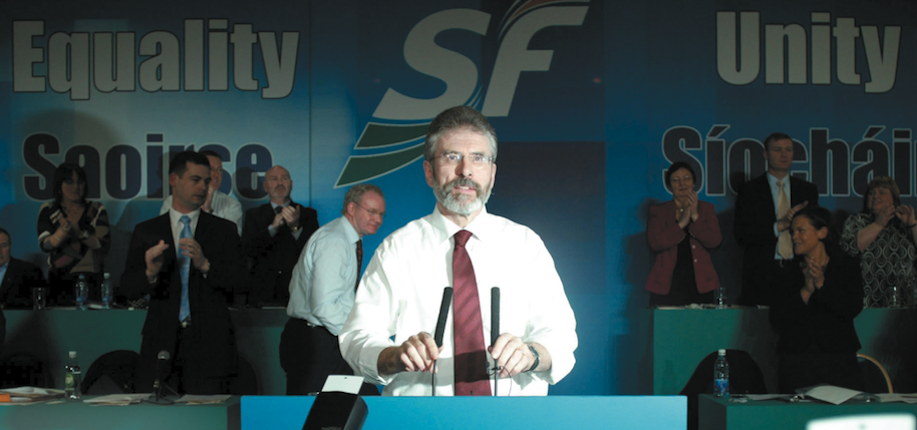Sinn Fein leader Gerry Adams was arrested in Northern Ireland on Wednesday, April 30, and held until the following Sunday night when he was released without charge.
Police cited new evidence from a Boston College Burns Library oral history project in which former IRA members apparently named Adams in connection with the kidnapping and killing of Jean McConville’s in 1972.
Adams has strenuously denied any involvement in McConville’s death and Sinn Fein and other supporters claimed that the arrest, and an extension order that allowed police to hold Adams for nearly 100 hours, was politically motivated and designed to damage Sinn Fein’s chances in the upcoming local and European elections in the Irish Republic and Northern Ireland.
Mark Baggott, the head of the Police Service of Northern Ireland said: “The arrest and questioning of Mr. Adams was legitimate and lawful and an independent judge subsequently decided that there were grounds for further detention.”
Boston College has now ended its oral history project on the Troubles in Northern Ireland. The participants who spoke to researchers had understood that their testimony would remain secret until after their death. However, the Police Service of Northern Ireland (using the Mutual Legal Assistance Treaty) took the college to court, and a U.S. judge ordered the Burns Library to turn over the tapes of interviews with paramilitaries who had implicated Adams in the McConville abduction.
Adams told the Irish Voice that the Boston College Belfast Project was flawed from the beginning, and that all of those interviewed were hostile to Sinn Fein. “…I was not and am not aware of any Republican or members of Sinn Fein in support of the peace process who were approached by Anthony McIntyre to be interviewed.”
A spokesperson for BC, Jack Dunn, agreed with Adams, and said the biggest mistake made by librarian Bob O’Neill “was in hiring Ed Moloney, who ultimately hired Anthony McIntyre . . . He did not vet them enough.”
McIntyre conceded in an interview with RTE that perhaps only “two out of the 26 people he interviewed were not anti-Sinn Fein.
Gerry Adams Arrested


Leave a Reply